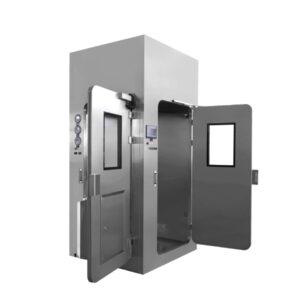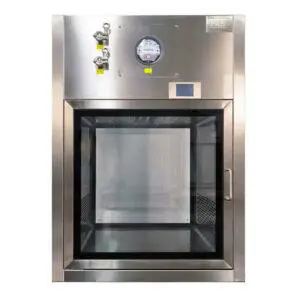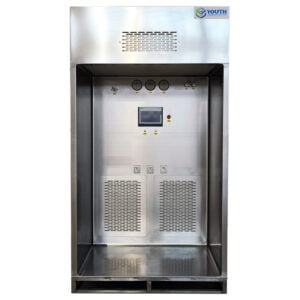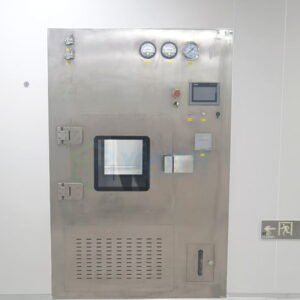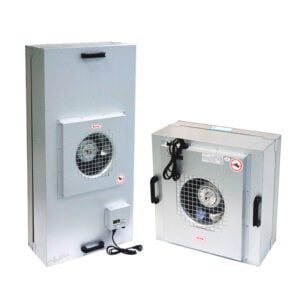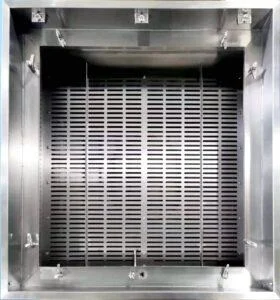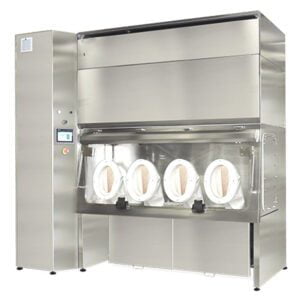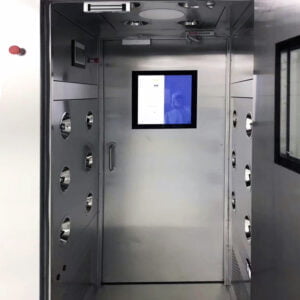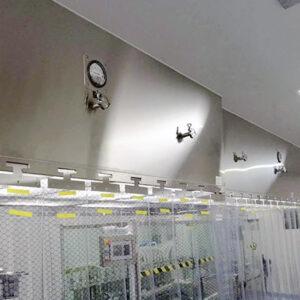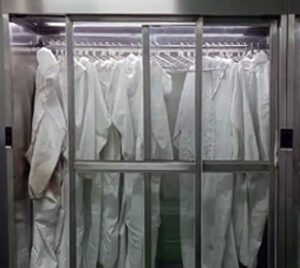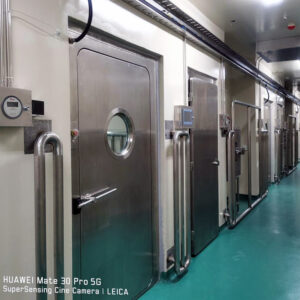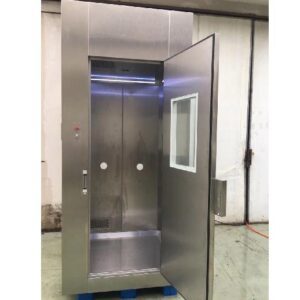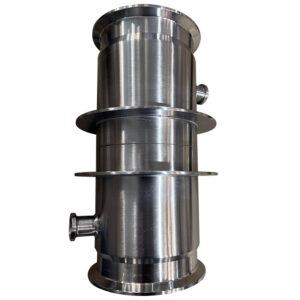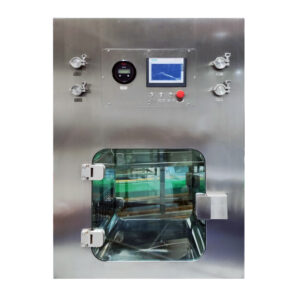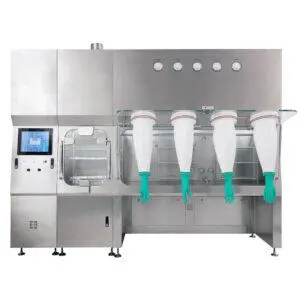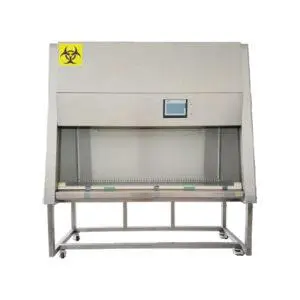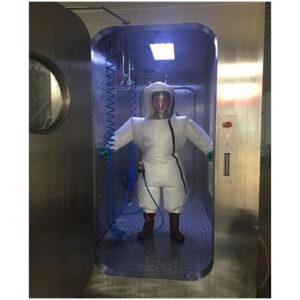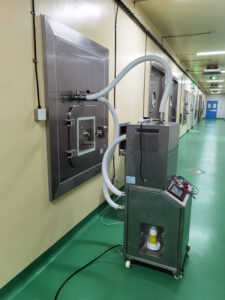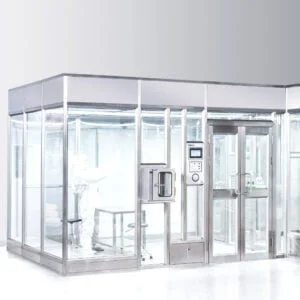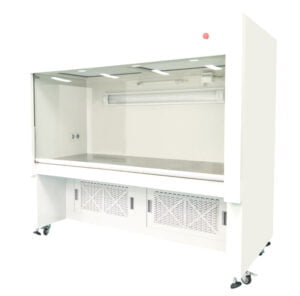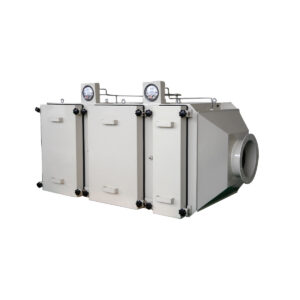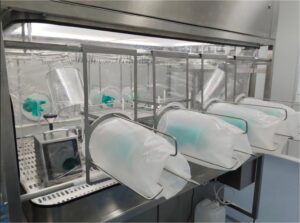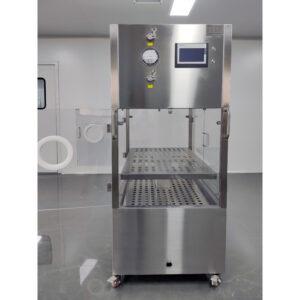The intersection of regulatory compliance and Bag-In-Bag-Out (BIBO) systems plays a crucial role in maintaining safety and efficiency in healthcare settings. As healthcare facilities strive to meet stringent standards while protecting both patients and staff, the implementation of BIBO systems has become increasingly important. These systems not only ensure the containment of hazardous materials but also align with various regulatory requirements that govern the healthcare industry.
In this comprehensive article, we'll explore the intricate relationship between regulatory compliance and BIBO systems in healthcare. We'll delve into the key regulations that impact the use of these systems, discuss best practices for implementation, and examine how BIBO technology contributes to maintaining a safe and compliant healthcare environment. From infection control to waste management, we'll cover the critical aspects that healthcare professionals need to understand to navigate the complex landscape of compliance while leveraging the benefits of BIBO systems.
As we transition into the main content, it's important to recognize that the healthcare industry faces unique challenges when it comes to regulatory compliance. The use of BIBO systems is just one aspect of a broader strategy to meet these challenges head-on. By understanding the regulations and implementing effective systems, healthcare facilities can create safer environments for patients and staff alike.
Regulatory compliance in healthcare is a multifaceted process that requires constant vigilance and adaptation to changing standards. BIBO systems are an essential component in meeting these standards, particularly in areas where containment of hazardous materials is critical.
What are the key regulations affecting BIBO systems in healthcare?
The regulatory landscape for BIBO systems in healthcare is complex and multifaceted. These systems must comply with a range of federal, state, and local regulations designed to protect public health and ensure workplace safety.
At the federal level, organizations such as the Occupational Safety and Health Administration (OSHA) and the Environmental Protection Agency (EPA) set standards that directly impact the use of BIBO systems. These regulations cover aspects such as air quality, hazardous waste handling, and worker protection.
Healthcare facilities must navigate this regulatory maze to ensure their BIBO systems meet all applicable standards. This includes regular inspections, documentation, and employee training to maintain compliance.
According to OSHA standards, healthcare facilities must implement engineering controls, such as BIBO systems, to minimize employee exposure to hazardous drugs and other potentially harmful substances.
| Regulation | Governing Body | Key Requirements |
|---|---|---|
| OSHA Hazardous Drugs Standard | OSHA | Use of closed system transfer devices, proper PPE |
| Clean Air Act | EPA | Emission control, air quality standards |
| Resource Conservation and Recovery Act | EPA | Proper disposal of hazardous waste |
| State Board of Pharmacy Regulations | State Agencies | Safe handling of pharmaceuticals |
How do BIBO systems contribute to infection control compliance?
Infection control is a paramount concern in healthcare settings, and BIBO systems play a significant role in maintaining compliance with infection control regulations. These systems provide a closed environment for handling potentially contaminated materials, reducing the risk of exposure to healthcare workers and patients.
The Centers for Disease Control and Prevention (CDC) provides guidelines for infection control that healthcare facilities must follow. BIBO systems align with these guidelines by creating a barrier between contaminated materials and the surrounding environment.
By implementing BIBO systems, healthcare facilities can demonstrate their commitment to maintaining a safe and hygienic environment. This not only helps in meeting regulatory requirements but also contributes to overall patient safety and quality of care.
The CDC emphasizes the importance of engineering controls, such as BIBO systems, in preventing the spread of infectious agents in healthcare settings. These systems are considered a primary method of source control.
| Infection Control Measure | BIBO System Contribution |
|---|---|
| Source Control | Containment of contaminated materials |
| Environmental Cleaning | Reduced surface contamination |
| Personal Protective Equipment | Minimized need for extensive PPE |
| Waste Management | Safe handling of infectious waste |
What are the best practices for implementing BIBO systems to ensure compliance?
Implementing BIBO systems in healthcare settings requires careful planning and adherence to best practices to ensure regulatory compliance. These practices encompass various aspects, from initial installation to ongoing maintenance and employee training.
First and foremost, healthcare facilities should conduct a thorough assessment of their needs and the specific regulations that apply to their operations. This assessment will guide the selection of appropriate BIBO systems that meet both operational requirements and compliance standards.
Regular maintenance and testing of BIBO systems are crucial for maintaining compliance. This includes routine inspections, filter changes, and performance evaluations to ensure the systems continue to function as intended.
Employee training is another critical component of BIBO system implementation. Staff members must be well-versed in proper operating procedures, safety protocols, and the importance of maintaining system integrity.
Proper documentation of BIBO system maintenance, testing, and employee training is essential for demonstrating compliance during regulatory inspections and audits.
| Best Practice | Description | Compliance Benefit |
|---|---|---|
| Regular Maintenance | Scheduled inspections and repairs | Ensures continuous system efficacy |
| Employee Training | Comprehensive instruction on system use | Reduces risk of operator error |
| Performance Testing | Periodic evaluation of system function | Verifies compliance with standards |
| Documentation | Detailed records of all system-related activities | Facilitates regulatory audits |
How do BIBO systems impact waste management compliance in healthcare?
Waste management is a critical aspect of healthcare operations, and BIBO systems play a significant role in ensuring compliance with waste disposal regulations. These systems provide a safe and efficient method for handling hazardous waste, including pharmaceutical waste and contaminated materials.
The Environmental Protection Agency (EPA) sets strict guidelines for the disposal of hazardous waste in healthcare settings. BIBO systems help facilities meet these guidelines by providing a controlled environment for waste containment and transfer.
By incorporating BIBO systems into their waste management processes, healthcare facilities can reduce the risk of environmental contamination and protect staff from exposure to hazardous materials. This not only aids in regulatory compliance but also supports broader sustainability and safety initiatives.
The EPA's Resource Conservation and Recovery Act (RCRA) requires healthcare facilities to properly identify, store, and dispose of hazardous waste. BIBO systems are instrumental in meeting these requirements by providing secure containment throughout the waste management process.
| Waste Type | BIBO System Application | Compliance Benefit |
|---|---|---|
| Pharmaceutical Waste | Secure containment during disposal | Prevents environmental contamination |
| Chemotherapy Waste | Safe handling of cytotoxic materials | Protects staff from exposure |
| Infectious Waste | Containment of biohazardous materials | Reduces risk of disease transmission |
| Sharps Waste | Safe disposal of needles and syringes | Prevents accidental needlesticks |
What role do BIBO systems play in maintaining air quality standards?
Maintaining air quality is a crucial aspect of healthcare facility management, and BIBO systems are instrumental in meeting regulatory standards for air quality. These systems help control the release of particulates and contaminants into the air, ensuring a safe environment for patients and staff.
The Clean Air Act, enforced by the EPA, sets national air quality standards that healthcare facilities must adhere to. BIBO systems contribute to compliance with these standards by providing effective filtration and containment of airborne contaminants.
In addition to federal regulations, many state and local authorities have their own air quality requirements for healthcare facilities. BIBO systems can be customized to meet these specific standards, providing a flexible solution for air quality management.
The EPA's National Emission Standards for Hazardous Air Pollutants (NESHAP) include specific requirements for healthcare facilities. BIBO systems are often used as a control measure to reduce emissions and maintain compliance with these standards.
| Air Quality Parameter | BIBO System Function | Regulatory Standard |
|---|---|---|
| Particulate Matter | High-efficiency filtration | EPA PM2.5 and PM10 standards |
| Volatile Organic Compounds | Activated carbon filtration | NESHAP VOC limits |
| Biological Contaminants | HEPA filtration | CDC guidelines for infection control |
| Chemical Fumes | Multi-stage filtration | OSHA permissible exposure limits |
How do BIBO systems align with Good Manufacturing Practices (GMP) in healthcare?
Good Manufacturing Practices (GMP) are essential guidelines that ensure the quality and safety of pharmaceutical products. BIBO systems play a crucial role in aligning healthcare facilities with GMP standards, particularly in areas where sterile conditions are required.
The Food and Drug Administration (FDA) enforces GMP regulations in the United States, and similar standards exist globally. BIBO systems contribute to GMP compliance by providing controlled environments for handling sensitive materials and maintaining product integrity.
In pharmaceutical manufacturing and compounding areas within healthcare facilities, BIBO systems help maintain the cleanliness and containment necessary for GMP compliance. These systems are particularly important in isolating processes that involve hazardous drugs or sterile preparations.
GMP regulations require pharmaceutical manufacturers to implement systems that prevent contamination and ensure product quality. BIBO systems are recognized as an effective engineering control that supports these requirements.
| GMP Aspect | BIBO System Contribution | Compliance Benefit |
|---|---|---|
| Contamination Control | Isolated handling of materials | Reduces risk of product contamination |
| Environmental Monitoring | Containment of particulates | Facilitates clean room compliance |
| Personnel Protection | Reduced exposure to hazardous substances | Enhances workplace safety |
| Quality Assurance | Consistent process environment | Supports product quality standards |
What are the challenges in maintaining regulatory compliance with BIBO systems?
While BIBO systems offer numerous benefits for regulatory compliance in healthcare, they also present certain challenges that facilities must address. Understanding and overcoming these challenges is crucial for maintaining long-term compliance and maximizing the effectiveness of BIBO systems.
One of the primary challenges is the initial cost of implementation. Healthcare facilities must weigh the upfront investment against the long-term benefits of improved compliance and safety. Additionally, there may be disruptions to existing workflows during installation and integration of BIBO systems.
Ongoing maintenance and validation of BIBO systems can also be challenging. Facilities must allocate resources for regular inspections, testing, and potential repairs to ensure continuous compliance. This requires dedicated personnel and potentially specialized training.
Keeping up with evolving regulations is another significant challenge. As healthcare standards continue to change, facilities must ensure their BIBO systems remain compliant with the latest requirements. This may necessitate periodic upgrades or modifications to existing systems.
Regulatory agencies expect healthcare facilities to demonstrate ongoing compliance through documentation and performance data. Maintaining comprehensive records of BIBO system operation, maintenance, and testing is essential for meeting these expectations.
| Challenge | Impact on Compliance | Mitigation Strategy |
|---|---|---|
| Initial Cost | May delay implementation | Cost-benefit analysis, phased implementation |
| Maintenance Requirements | Potential for system failures | Preventive maintenance program, staff training |
| Regulatory Changes | Risk of non-compliance | Regular regulatory reviews, adaptable system design |
| Documentation Burden | Incomplete compliance records | Automated monitoring and reporting systems |
In conclusion, the integration of BIBO systems in healthcare settings is a critical component of maintaining regulatory compliance and ensuring the safety of patients and staff. These systems provide effective solutions for containment, air quality management, and waste handling, aligning with various regulatory requirements set forth by agencies such as OSHA, EPA, and the FDA.
As we've explored, BIBO systems contribute significantly to infection control, waste management, air quality standards, and Good Manufacturing Practices. They offer a robust approach to meeting the complex regulatory landscape of the healthcare industry. However, successful implementation and maintenance of these systems require careful planning, ongoing attention to evolving standards, and a commitment to best practices.
Healthcare facilities must navigate the challenges associated with BIBO systems, including initial costs, maintenance requirements, and the need for continuous validation. By addressing these challenges proactively and leveraging the benefits of BIBO technology, healthcare providers can create safer environments, improve regulatory compliance, and ultimately enhance the quality of care provided to patients.
As regulations continue to evolve and the importance of containment and safety in healthcare settings grows, BIBO systems will undoubtedly play an increasingly vital role. Healthcare facilities that embrace these systems and integrate them effectively into their compliance strategies will be well-positioned to meet current and future regulatory challenges while maintaining the highest standards of safety and quality in patient care.
For those seeking to implement or upgrade their BIBO systems, 'YOUTH FILTER' offers a range of solutions designed to meet the stringent requirements of healthcare environments. Their expertise in cleanroom equipment and biosafety purification can help facilities navigate the complex landscape of regulatory compliance while ensuring the highest standards of safety and efficiency.
External Resources
OSHA Safety and Health Topics: Healthcare – Comprehensive resource on occupational safety and health standards for healthcare workers, including information on hazardous drug exposure.
EPA Healthcare Environmental Resource Center – Provides information on environmental regulations and pollution prevention in healthcare settings.
FDA Current Good Manufacturing Practice (CGMP) Regulations – Outlines the regulations for ensuring the quality of pharmaceuticals and medical devices.
CDC Guidelines for Environmental Infection Control in Health-Care Facilities – Offers recommendations for preventing healthcare-associated infections through environmental control measures.
NIOSH List of Antineoplastic and Other Hazardous Drugs in Healthcare Settings – Provides information on handling hazardous drugs in healthcare settings, relevant to BIBO system applications.
American Society of Health-System Pharmacists Guidelines on Handling Hazardous Drugs – Offers guidance on the safe handling of hazardous drugs in healthcare facilities.
Related Contents:
- Nuclear Safety Revolution: BIBO Systems Enhance Protection
- Implementing BIBO Systems in Biotechnology Research Labs
- Revolutionizing Biotech: BIBO Technology’s Cutting-Edge Advancements
- The Cost-Effectiveness of BIBO Systems in Industrial Applications
- Introduction
- Bag-In-Bag-Out Systems: Ensuring Safe Contamination Control
- The Rise of BIBO Systems in Pharmaceutical Manufacturing
- Unveiling the Power of Bag-In-Bag-Out Systems
- Regulatory Compliance and Biosafety: Passboxes in Healthcare


